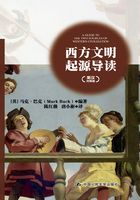
PREFACE
This is a book written for the general reader who is interested in evaluating and understanding Western culture.It aims to provide an introduction to the two main sources of Western civilization — Greek mythology and the Bible — and assumes no previous background knowledge of either.Until recently the study of Greek and Roman culture,and of the classical languages of Greek and Latin in particular,was a major feature of western education.Until very recently too,most educated westerners had a fairly extensive knowledge of the Bible,as a result both of their education and of fairly widespread religious observance.So Western writers assumed a quite detailed knowledge of both Greek mythology and the Bible in everything they wrote.A working knowledge of these two very large areas is therefore a necessary key to understanding most Western literature and art.
The book’s first object is therefore to select from very extensive and often very complex material what is most essential.However,in doing this,we have been reluctant to restrict ourselves and our readers to a purely narrative presentation of the subject.We wish to make the reader acutely aware of the historical context in which the Greek myths and the books of the Bible were written,and to insist that this historical context shaped what they said and how they said it.We also wish to provoke the reader into detecting the values of the people who told these stories,and to judge them against the values of other ancient civilizations and against our own today.
There is plenty of room for textual criticism.Stories both mythological and historical are transformed as they are repeated.They are often used for purposes quite different from those intended by their creators.There is therefore a need for critical analysis,especially when dealing with the Bible.It is important to treat the Bible as a series of historical documents and to apply the same rules of textual criticism to them as one would apply to any other text.This is not to denigrate a text which many regard as sacred;it is to enable a deeper,more mature and more relevant understanding of it.
We have often raised questions without offering definitive answers.That is because to some questions there are none,while to others the conventional answers are unsustainable.We contend that it is important never to fear rational enquiry or critical analysis,even with religious texts.
We are much indebted to the generous sponsorship of the University of Science and Technology Beijing.We are also grateful to Professor William Horbury of Cambridge University and the Revd.William Church of St Andrew’s Hertford for their advice and comments.
Mark Buck
Chen Hongwei
Beijing
August 2018